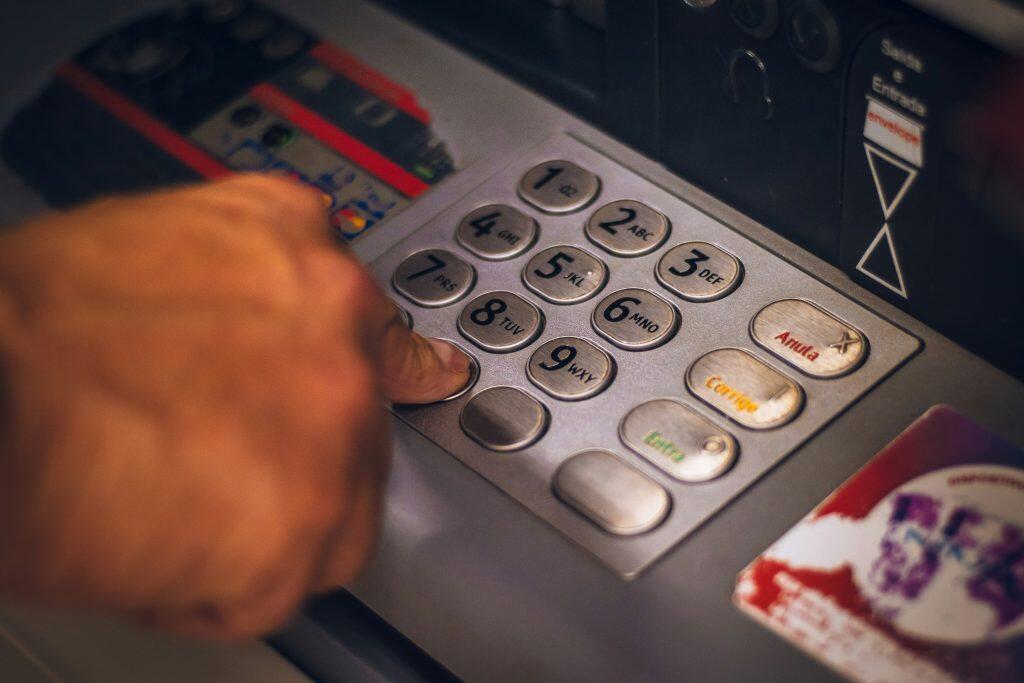
Table of Contents
Starting a small business is tough enough; finding the right bank shouldn’t be. Whether you’re in the first stages of launching your dream or managing an already established venture, your choice of bank can have a profound impact on your ability to grow, thrive, and adapt. Managing cash flow, accessing funding when you need it most, and finding financial tools to streamline your operations are all vital to staying competitive. But with so many banking options available today—from traditional big-name institutions to sleek, online-only platforms—it’s easy to feel overwhelmed. Choosing among the best banks for small business can make all the difference.
This article is here to cut through the noise, giving you a clear breakdown of the best banks for small business, their pros and cons, and everything you need to know to make an informed decision. By the time you finish reading, you’ll have the insights you need to pick a banking partner that helps you take your business to the next level.
Highlights
- Banking needs vary by business type: Retail shops, digital service providers, and solopreneurs all have different priorities, so choosing the best bank for your small business depends on your unique needs.
- Convenience and access are crucial: Look for banks with nearby branches and ATMs or strong digital tools if you prioritize online banking.
- Banking fees can add up: Compare monthly charges, transaction fees, and minimum balance requirements to avoid unnecessary costs. Some banks waive fees for meeting specific criteria.
- Financial products support growth: Choose a bank that offers tailored loans, lines of credit, and business credit cards to help you scale or manage challenges.
- Customer service matters: Responsive, knowledgeable support—whether in-person, online, or via phone—can save time and reduce stress.
- Digital tools streamline operations: Banks with robust mobile apps, online payment systems, and bookkeeping integrations can save time and improve efficiency.
- Test banks before committing: Open a basic account to evaluate customer service, digital tools, and overall experience.
- Gather feedback from peers: Talk to other small business owners and read reviews to understand each bank’s strengths and weaknesses.
- Online banks offer cost savings: They often have lower fees, higher deposit interest rates, and 24/7 account access, but may lack in-person support.
- The right bank supports long-term success: Regularly review your banking needs to ensure your chosen bank aligns with your business’s growth and goals.
Key Factors to Consider When Choosing a Bank for Your Small Business

Banking isn’t one-size-fits-all, especially for small businesses. A retail shop’s needs differ from a digital service provider’s or a solopreneur’s. While some factors may matter more depending on your situation, a few are universally important. Understanding these will help you narrow your options and get the best banks for small business that provide the best value.
Convenience and Access
Convenience is a top priority for most business owners. How many branches and ATMs are nearby? Can you speak to someone in person when there’s an issue, or are you stuck with automated phone menus? A physically accessible bank offers peace of mind in emergencies. For online businesses, virtual tools and remote access may be more important than physical locations when choosing the best banks for small business.
Banking Costs
Banking fees can add up quickly. Monthly charges, transaction fees, overdraft penalties, and minimum balance requirements can eat into profits. Some best banks for small business waive fees if you meet specific criteria, while others have low-cost packages better suited for tight budgets. Understanding the costs can help you avoid unnecessary expenses.
Financial Products
Financial products are key, especially if you need loans or lines of credit to grow or handle challenges. Look for the best banks for small business with loan options tailored to your needs, from short-term solutions to major capital boosts. Also, check for business credit cards, merchant services, and accounts designed for business operations.
Customer Service
Good customer service is essential. How easily can you get help when you need it? Think about whether you prefer in-person interactions, online chat, or 24/7 phone support. The best banks for small business with responsive, knowledgeable support will save you time and reduce stress.
Digital Tools
Digital tools are critical in today’s business environment. Look for the best banks for small business with a strong mobile app, online payment systems, and integrations with bookkeeping software. Streamlined financial tools save time and let you focus on running your business.
Special Programs and Perks
Don’t overlook perks for small businesses. Some best banks for small business offer financial education, merchant service discounts, or access to SBA-backed loans. These extras might seem small but can add significant value over time.
Learn more: Is Your Business at Risk? How a Small Business Attorney Can Help Protect You!
The Best Banks for Small Business

No matter what type of small business you run, these best banks for small business are known for offering excellent support to small businesses. Here’s a look at the key features that make each one stand out.
Bank of America
Bank of America is a top choice for small business owners, offering a full range of services from tiered checking accounts to credit cards with cash-back rewards. The bank also provides competitive small business loans and lines of credit.
A standout feature is the Business Advantage 360 dashboard on its mobile app, which gives real-time insights into cash flow and financial health, helping business owners make better decisions. With a large branch network and reliable customer service, Bank of America remains one of the best banks for small business.
Chase Bank
Chase Bank’s extensive branch and ATM network is a major draw for small business owners who value accessibility. Beyond convenience, Chase offers tailored financial resources like competitive loans, educational webinars, and consultations.
Chase’s credit cards, like the Ink Business line, let you earn rewards redeemable for travel, supplies, and more. Its mobile app is intuitive and packed with tools for account management. With flexible checking options for various business sizes, Chase adapts easily to changing needs, making it one of the best banks for small business.
Wells Fargo
Wells Fargo is known for personalized, relationship-based services. This is especially helpful for small businesses exploring loan options or establishing credit. The bank offers a variety of lending solutions, including SBA-backed loans and lines of credit.
Its financial management tools integrate with platforms like QuickBooks, simplifying bookkeeping. While past controversies may give some pause, Wells Fargo has worked to rebuild trust and improve transparency, remaining one of the best banks for small business.
Capital One
Capital One is ideal for small business owners seeking low-cost banking. Its flexible accounts come with minimal fees and no overdraft penalties. The Spark Business credit cards feature strong rewards programs, helping businesses scale while earning perks.
Though its physical branch network is smaller compared to larger banks, Capital One’s digital banking tools make transactions and account management easy, appealing to tech-savvy entrepreneurs who are looking for the best banks for small business.
US Bank
US Bank strikes a balance between tailored support and accessibility. While its branch network is smaller than that of Chase or Bank of America, it excels in customer service for small businesses. The bank offers a wide variety of lending products, including working capital loans, equipment financing, and SBA-backed options.
US Bank also provides resources like financial advice and educational tools. Its online and mobile platforms are solid but not as advanced as some bigger competitors. For those who value personalized service and specialized financing, US Bank consistently ranks among the best banks for small business.
Online-Only Banks
If tech and cost savings are priorities, online-only banks like Novo, Axos, or Bluevine may be the answer. These best banks for small business offer low or no fees, efficient digital tools, and integrations with popular business software, catering to modern entrepreneurs.
While the lack of in-person support can be a drawback, many small business owners find the convenience and cost savings worth it. For those comfortable managing finances digitally, online-only banks are a smart choice among the best banks for small business.
Learn more: How Integrated Marketing Communications Enhances the Customer Experience Like Never Before
Tips for Making the Right Choice

Every small business has unique financial needs, so it’s essential to evaluate what matters most to you. Here’s a simple guide to help you choose the right banking partner:
1. Identify Your Priorities
- Starting Out: Are you looking for a bank with low fees and basic services to launch your business?
- Scaling Up: Do you need access to credit, loans, or advanced financial tools to grow your operations?
Clarify your top priorities to focus on banks that align with your goals.
2. Test Each Bank’s Offerings
Once you have a shortlist, evaluate their services:
- Customer Service: Are their representatives responsive, knowledgeable, and easy to reach?
- Digital Tools: Is their online banking platform user-friendly and reliable?
- Trial Run: Open a basic checking account to get a sense of their overall service, both in-person and online.
3. Gather Feedback
- Network Insights: Talk to fellow small business owners about their banking experiences.
- Online Reviews: Read testimonials and reviews to get a broader perspective of each bank’s strengths and weaknesses.
Learn more: Think You Know Small Business Accounting? Think Again, Genius!
Final Thoughts
There’s no one-size-fits-all solution when it comes to banking for small businesses. Every business is unique, and finding the right banking partner starts with understanding your specific needs. Whether you’re focused on keeping costs low, having a knowledgeable banker, or using advanced digital tools, the right choice can set your business up for success.
Want to learn more about finding the perfect banking solution for your business? Join us at our next Small Business Expo event! Connect with experts, explore options, and take the next step with confidence. Don’t miss this opportunity to invest in your business’s future.
The Best Banks for Small Business FAQs
Do banks offer special accounts or perks for startups?
Some banks offer startup-friendly accounts with low or no minimum balances and waived fees for the first year. Perks may include free payroll tools, expense tracking, or discounted loans. Startups should compare offers to maximize savings..
Are big banks better than community banks for small businesses?
Big banks offer more services and nationwide access, ideal for growing businesses. Community banks provide personalized service and stronger ties to local businesses. The choice depends on whether flexibility or personal attention matters more to you..
Which banks are known for offering the best small business loans?
Wells Fargo, Chase, and Bank of America are known for accessible small business loans. They offer various options, competitive rates, and support for businesses of all sizes. Compare loan terms and requirements to find the best fit..
What are the key benefits of choosing an online bank for a small business?
Online banks often offer lower fees, higher interest rates on deposits, and 24/7 access to accounts. Their digital tools simplify tasks like payroll processing and invoicing. However, it’s important to ensure the bank provides robust customer support and meets all business banking needs.
How can a small business ensure they’ve chosen the right bank?
The right bank should meet the business’s financial needs, offer fair terms, and provide great support. Regularly reviewing account features ensures it stays aligned with the company’s growth. A strong banking partnership can streamline operations and support long-term success.
